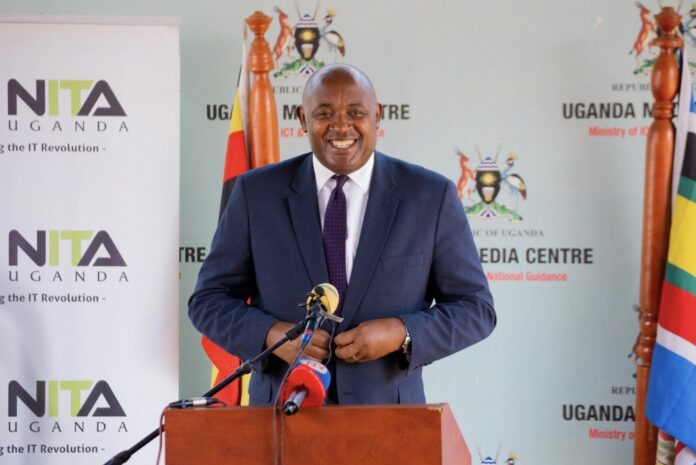Hopes the move will encourage private sector internet firms to do the same
Uganda’s ICT minister Dr Chris Baryomunsi (pictured) announced the government will halve the cost of data it provides through the national fibre backbone from $70 per Mbps to $35 per Mbps per month.
The minister added that he hoped by the reduction by 50%, private internet service providers will follow suit.
“I would like to note that this price reduction means government offices connected to the National Data Transmission Backbone Infrastructure will consume internet at the lowest price in the market,” he said at the Uganda Media and was reported in the Nile Post.
“With this bold move, National Information Technology Authority Uganda (NITA-U) will drive substantial savings on the government’s communication budget, catalyse the adoption of e-government services, and deepen digitisation,” he added.
It remains to be seen whether any of the private sector service providers will budge. Although there has been a recent flurry of activity on mobile with both MTN and Airtel launching their 5G networks, more infrastructure is needed to help reduce the cost of business and connect communities.
To date, Uganda’s National Backbone used by the government now extends to all regions of the country spanning 4,300km extending connectivity to around 1466 government offices, 53 districts and nine border points.
NITA-U executive director Dr Hatwib Mugasa said ‘’We’ve been working hard to consistently lower the cost of internet bandwidth in Uganda especially for government institutions since they provide onward services to ordinary citizens and the private sector. We are happy that we have maintained our long-term plans to lower bandwidth prices.”
Further scrutiny
NITA-U came under scrutiny from legislators at the Committee on ICT and National Guidance yesterday with MPs complaining about the state of e-services within government. Director for E-government Collin Babirukamu said the authority is providing a platform to integrate the different systems used at various administrative centres.
He added that reducing the unit cost of smartphones on the market will improve access to e-governance services. “We still have taxes on these smartphones which are inhibiting e-government usage,” he said. “We want to have all these services on a phone so that one can get a passport or driving permit on their mobile devices.”
Digital Acceleration Project
In a separate announcement, Refugee hosting districts around the country will soon be connected to high-speed internet under the Uganda Digital Acceleration Project (UDAP-GOVNET).
NITA-U’s Mugasa said the move aims at promoting digital inclusion in the 12 districts hosting refugees. “We shall deploy 80 mobile broadband masts, purchase additional bandwidth, develop a telecentre for refugee hosting communities, set up an e-waste management centre and expand wi-fi hotspot sites,” he said.
To ensure the success of the UDAP project, 53 district headquarters have been connected to the national backbone infrastructure under the last mile connectivity project. Another 61 local government sites have been connected.



